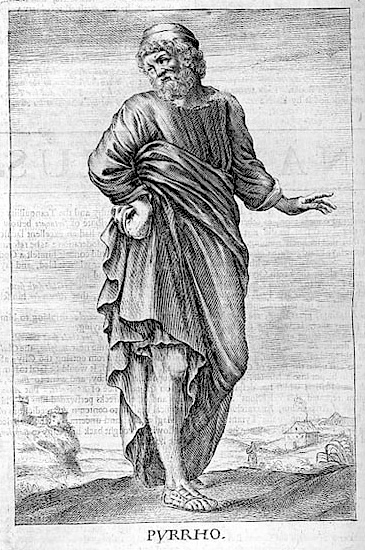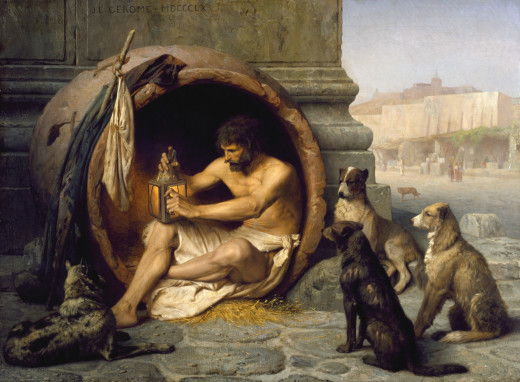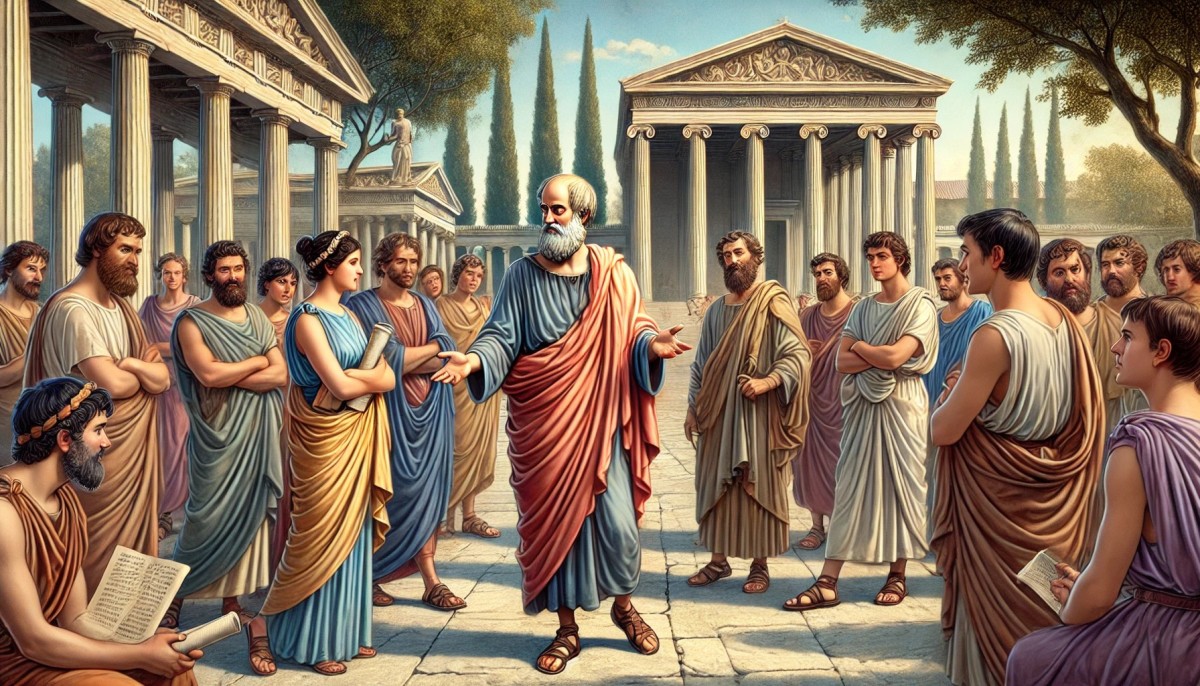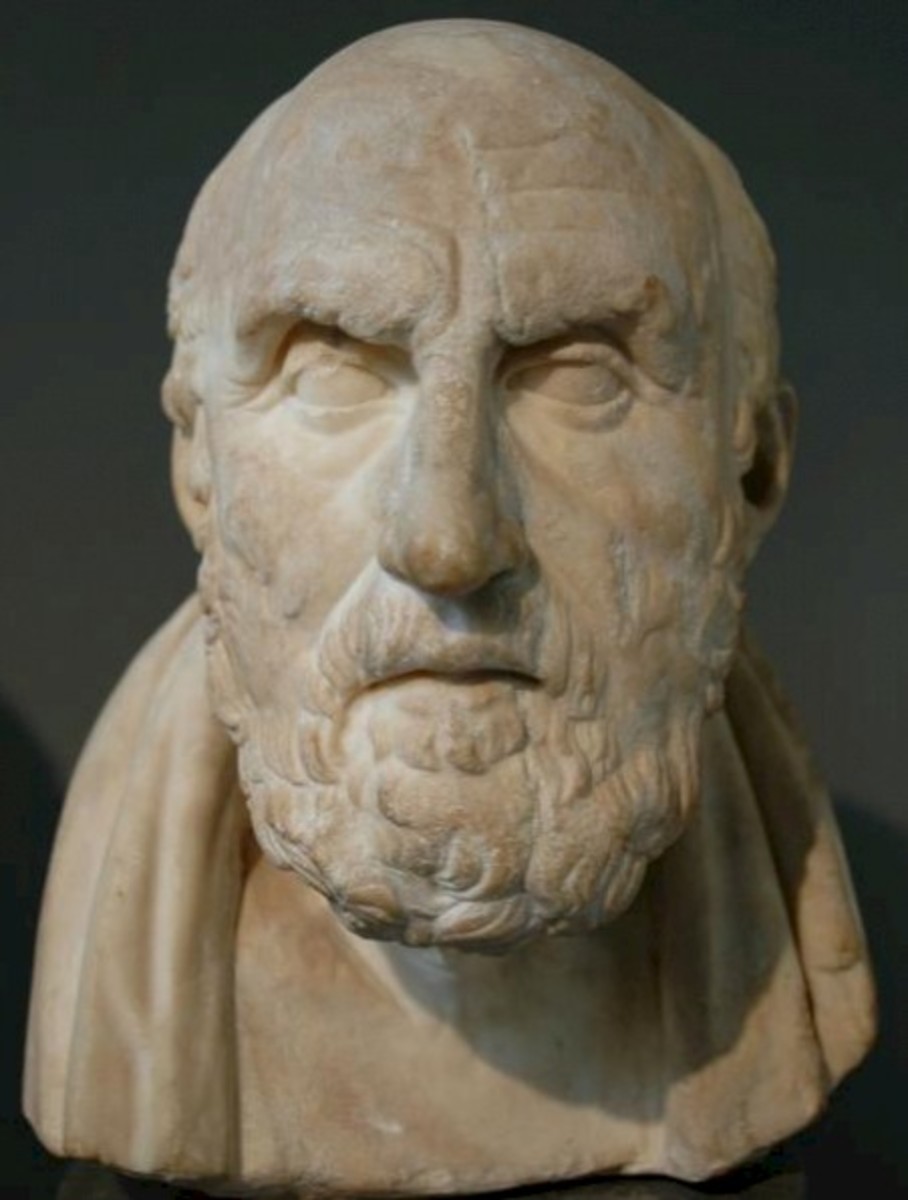Philosophy Simplified: Hellenism Part 2 - Skepticism and Cynicism
Introduction
This article is my second article about Hellenistic philosophies. Refer to my previous article for some historical background and a proper introduction.
- Philosophy Simplified: Hellenism Part 1 - Stoicism and Epicureanism
Stoicism and Epicureanism thrive to free us from negative influences. Both philosophies are even more relevant in today's word than before, with our quick-paced world full of fear and misery.
The rest of my philosophical articles
- Philosophy Simplified: Introduction and Table of Contents
A beginner's guide to philosophy, from Thales to Wittgenstein, from ancient Greece to modern Britain. Each article describes an important topic in philosophy, aimed to teach and entertain.

Pyrrhonism (Skepticism)
Pyrrho (360BC to 270BC) is said to be the first skeptic, he is the founder of the philosophical school of Skepticism. He accompanied Alexander the great on his campaign to the east, learning from Indian and Persian masters as well as from Greek philosophers.
He followed the trails of the sophists and claimed that nothing could be known for sure. Because skeptics believed that neither senses nor reason could lead to the truth, they believed that any judgement (epoché) passed is a logical fallacy.
Instead of choosing the "right side", skeptics try to gather the strongest arguments for both sides and then decide which one they would prefer. If there isn't much of a difference, they abandon the question. The point of skepticism too is to reach ataraxia, the "state without fear or worry". According to them, it's the unwarranted trust in our judgments that leads to worry and thus away from ataraxia.
Another important skeptic was Aenesidemus (lived in 1st century BC), who immersed himself in Pyrrho's teachings and then developed his own ideal skepticism. To support his skepticism, he too turned to relativism:
- Different animals manifest different modes of perception;
- Similar differences are seen among individual men;
- For the same man, information perceived with the senses is self-contradictory
- Furthermore it varies from time to time with physical changes
- In addition, this data differs according to local relations
- Objects are known only indirectly through the medium of air, moisture, etc.
- These objects are in a condition of perpetual change in colour, temperature, size and motion
- All perceptions are relative and interact one upon another
- Our impressions become less critical through repetition and custom
- All men are brought up with different beliefs, under different laws and social conditions
He also attacked causality, as in the relation between cause and effect.
'To a human mind, the true relation between a cause and effect is impossible to determine. He argues that if cause and effect are different, then they must occur either simultaneously or in succession. If they happen at the same time, then in essence cause is effect and effect is cause. If they are instead in succession, then the cause must precede the effect as an effect cannot precede its cause, and therefore there must be a space of time when the cause is actually not effective, meaning that it is essentially not itself.'
To every argument another argument is opposed with the same strength.
— AenesidemusCynicism
Antisthenes (-445 to -365) was a pupil of Socrates, and also a student of Gorgias. He adopted Socrates' virtues and lived an ascetic life. He considered pleasure to be the ultimate evil, with infamy and pain considered better alternatives. 'I'd rather be mad than feel pleasure.' - Antisthenes, Diogenes Laertius
He had a skeptic view on gods, or more specifically on god since he developed a monotheistic worldview in his work, the 'Physicus'. He was also skeptic about the problem of universals, he claimed that Plato's ideas lack empirical evidence and are therefore irrelevant.
But it wasn't him that made the skeptics famous, it was someone else... not the founder, but the alleged follower.
Diogenes of Sinope

Diogenes of Sinope (-412 to -323) was an infamous cynic. He moved to Athens after being banished from his hometown of Sinope for debasement of currency (he was born into a minter family), and became notorious for his simple lifestyle and for constantly taunting the citizens of the polis. He lived in a barrel, and his only possession was a drinking cup, up until he abandoned even that.
Cynic means 'dog-like', as it is mentioned numerous times by Diogenes in the anecdotes, cynics often call themselves dogs. The principles of cynicism are:
- The goal is 'eudaimonia', 'human well-being', which is achieved by getting rid of ignorance, mindlessness, folly and conceit.
- This is done by living in harmony with nature, as interpreted by reason.
- Arrogance is caused by false judgement, and lead to negative (destructive) emotions.
- 'Eudaimonia' requires self-sufficiency, 'apatheia', virtue, love of humanity, parrhesia and indifference to the changes in life.
- One way to achieve 'eudaimonia' is through asceticism
- A cynic must be shameless and must deface the norms of society: laws, customs and social conventions that people are used to.
His life is mostly know through anecdotes, I'm going to show you a few, because he was indeed a remarkable character.
'Seeing the child of a courtesan throw stones at a crowd, he cried out, "Take care you don't hit your father." '
'One day he shouted out for men, and when people collected, hit out at them with his stick, saying, "It was men I called for, not scoundrels." '
'He lit a lamp in broad daylight and said, as he went about, "I am looking for a man." '
'When some one first shook a beam at him and then shouted "Look out," Diogenes struck the man with his staff and added "Look out." '
'He used also to reason thus: "All things belong to the gods. The wise are friends of the gods, and friends hold things in common. Therefore all things belong to the wise." '
'Of a public bath which was dirty he said, "When people have bathed here, where are they to go to get clean?" '
'One day, observing a child drinking out of his hands, he cast away the cup from his wallet with the words, "A child has beaten me in plainness of living." He also threw away his bowl when in like manner he saw a child who had broken his plate taking up his lentils with the hollow part of a morsel of bread. '
But the most famous anecdote of all, is the one involving Alexander the Great, and him meeting Diogenes. According to the story, Alexander offered him a wish he would fulfill. Diogenes looked up at him, cringed and told him to 'stand a little out of my sun' as Alexander had been casting a shadow at him. Afterwards, Alexander said: 'But truly, if I were not Alexander, I would be Diogenes.'
© 2015 Medvekoma








